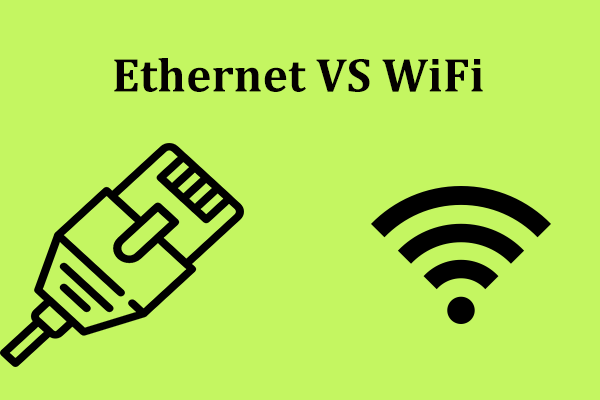Internet Service Provider Definition
What Is an ISP Internet Service Provider?
An Internet service provider ISP is an organization that offers numerous services to access, participate, or use the Internet. ISP can be organized in many forms, privately owned, community-owned, commercial, or non-profit.
Internet services typically provided by Internet service providers can include Internet access, Internet transit, web hosting, domain name registration, colocation, as well as Usenet service. An ISP commonly serves as the access point or the gateway, which provides users with access to all things available on the Internet.
Types of Internet Service Provider
In general, there are seven types of Internet service providers.
Internet Access Service Providers
Access ISPs provide Internet access and employ a myriad of technologies to connect users to their network. Those technologies range from computer modems with acoustic couplers to telephone lines, WiFi, television cable (CATV), and fiber optics.
For individual users and small businesses, traditional options to access the Internet include copper wires for dial-up, cable modem, digital subscriber line (DSL), typically asymmetric digital subscriber line (ADSL), and integrated services digital network (ISDN) (typically basic rate interface). To use fiber-optics to end users is called Fiber to the Home or similar names.
Users with higher requirements, like medium-to-large businesses, can make use of higher-speed DSL (e.g. single-pair high-speed digital subscriber line, SHDSL), Ethernet, gigabit Ethernet, metropolitan Ethernet, ISDN Primary Rate Interface (PRI), Frame Relay, Asynchronous Transfer Mode (ATM), and synchronous optical networking (SONET).
Another Internet access option is wireless access. It includes cellular and satellite Internet access.
Internet Transit Service Providers
Just like their users pay them for Internet access, Internet service providers themselves pay upstream ISPs for Internet access. Upstream ISPs usually have larger networks than the contracting ISP. Or, upstream Internet service providers can provide the contracting ISPs with access to parts of the Internet that the contracting ISPs themselves can’t access to.
Transit ISPs provide a large amount of bandwidth to connect hosting ISPs and access ISPs.
Internet Hosting Service Providers
Hosting ISPs provide web-hosting, email, or online storage services. It also provides other services like cloud services, physical server operation, as well as virtual server services.
Internet Wireless Service Providers
A wireless Internet service provider (WISP) is an Internet service provider with a network based on wireless networking. Its technology may include commonplace WiFi wireless mesh networking or proprietary equipment designed to operate over open 900 MHz, 2.4 GHz, 4.9 GHz, 5.2 GHz, 5.4 GHz, 5.7 GHz, and 5.8 GHz bands or licensed frequencies, such as 25. GHz (EBS/BRS), 3.65 GHz, (NN) and in the UHF band (including the MMDS frequency band) & Local Multipoint Distribution Service (LMDS).
Internet Mailbox Service Providers
A mailbox ISP is an organization that offers services for hosting electronic mail domains accessing storage for mailboxes. It provides mail servers to send, receive, store, and accept mails for end users.
Many mailbox providers also access providers while others are not, such as Gmail, Outlook, Yahoo, Po box, and AOL Mail.
The mailbox service is typically accomplished by implementing the Simple Mail Transfer Protocol (SMTP). Possibly, it provides access to messages via the Internet Message Access Protocol (IMAP), the Post Office Protocol (POP), a proprietary protocol, or Webmail.
Internet Free Service Providers
A free ISP is an Internet service provider that provides services freely. Many free ISPs display advertisements while the user is connected, like commercial television, in a sense, they are selling user attention to the advertisers. While other free ISPs, also known as freenets, are run on a basis of nonprofits, usually with volunteer staff.
Internet Virtual Service Providers
A virtual Internet service provider (VISP) is an operation that buys services from another real ISP, also called a wholesale ISP in this context. Such wholesale ISP enables the VISP’s users to access the Internet using services and infrastructure owned and operated by the wholesale ISP itself.
The VISPs are similar to the mobile virtual network operators (MVNO) or competitive local exchange carriers (CLEC) for voice communications.
Internet Service Types
- Cable Internet
- DSL Internet
- Fiber Internet
- Satellite Internet
Internet Service Provider Lists
Below are some lists of ISPs.
Best Internet Service Providers
- Best package simplicity: Spectrum
- Best promotional deals: AT&T
- Best speed availability: Xfinity (Comcast Internet service provider)
- Best reliability: Optimum
- Best fiber options: Verizon Fios
- Best package variety: Frontier
- Best value: CenturyLink
- Best customer satisfaction: EarthLink
- Best rural internet provider: Viasat
- Most commonly bundled plans: Optimum, Xfinity, and Spectrum
Cheap Internet Service Providers
- Cox Communications: $19.99/mo. for 10 Mbps
- Xfinity: $20.00/month for 25 Mbps
- Frontier: $29.99/mo. for 50 Mbps
- Suddenlink Communications: $34.99/mo. for 100 Mbps
- Optimum: $39.99/mo. for 300 Mbps
- Verizon Fios: $39.99/mo. for 200 Mbps
- WOW: $39.99/mo. for 100 Mbps
- Mediacom: $39.99/mo. for 60 Mbps
- AT&T: $49.99/mo. for 100 Mbps
- Spectrum: $49.99/mo. for up to 100 Mbps
- CenturyLink: $49.99/mo. for up to 100 Mbps
Other Popular Internet Service Providers in the USA
- Windstream
- RCN
- Sparklight (former Cable One)
- Hughesnet
- Starry Internet
- Ziply Fiber
- T-Mobile
- Metro by T-Mobile
- Cricket Wireless
- Rise Broadband
- S. Cellular
Fastest Internet Service Provider
The fastest ISP in the United States is Xfinity. It has the fastest download and upload speed in most parts of the country with a fiber optic internet plan that delivers speeds of up to 2,000 Mbps. None of the other ISP in the US can go up to that speed.
Also, Xfinity is one of the largest Internet service providers in America with a network in 40 states capable of serving 40% of the whole population.
The second fastest ISP should be EarthLink with plans top out at 1,000 Mbps and available in 49 states covering 71% of the US population.
Other highspeed internet service providers can be AT&T and Spectrum that are also capable of delivering 1,000 Mbps speeds on certain plans. Both providers cover dozens of American states.
About 5G Home Internet
5G refers to the fifth-generation wireless network technology after 4G. It is the newest standard regarding data communication for a network. Compared to former generations, 5G enables data to transfer from a source to its destination much quicker with fewer delays. It is applied to both home Internet and cellphones.
5G Home Internet Advantages
- High speeds (Gigabit connection)
- Low latency
- High cost-efficient
- High availability
- High reliability
5G Home Internet Disadvantages
- Not all devices compatible
- High bandwidth with small coverage and low penetration abilities
5G Home Internet Service Providers
- Starry: $30.00/mo. for 100 – 200 Mbps with unlimited data caps
- Verizon: $50.00/mo. for 300 – 1,000 Mbps with unlimited data caps
- T-Mobile: $50.00/mo. for 9 – 47 Mbps with unlimited data caps
- AT&T: $59.99/mo. for 10 – 25 Mbps with 250 GB/mo. data caps
Who Is My Internet Service Provider?
Where or how to find your internet service provider? You can find it on the exterior panel (on the exterior of the home adjacent to the main electrical panel) and the wiring boxes (located in neighborhoods with underground wiring).



